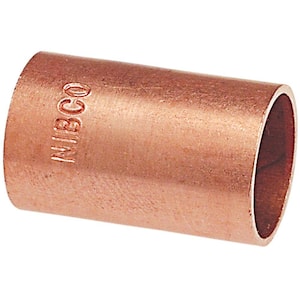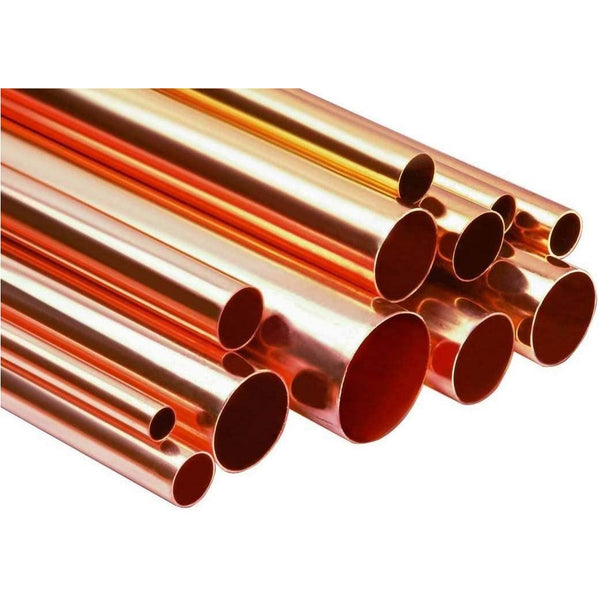How to Choose the Right Copper Products for Your Do It Yourself Projects and Home Renovations
How to Choose the Right Copper Products for Your Do It Yourself Projects and Home Renovations
Blog Article
Exploring the Diverse Applications of Copper Products in Modern Industries
From improving the efficiency of electrical systems to playing a crucial function in eco-friendly energy modern technologies, the flexibility of copper is obvious. As industries progressively focus on innovation and sustainability, the diverse applications of copper necessitate a closer evaluation, especially concerning their potential effect on future ecological practices and technological improvements.
Electric Applications of Copper
Copper is an essential material in the electrical market, making up approximately 60% of the overall need for non-ferrous metals internationally - Copper Products. Its premium electrical conductivity, which is virtually twice that of aluminum, makes it the favored option for a vast array of electric applications. From wiring systems in industrial and property structures to high-voltage power transmission lines, copper makes certain performance and integrity in electricity delivery
Along with electrical wiring, copper is indispensable to the manufacturing of electrical components such as generators, electric motors, and transformers. These parts leverage copper's thermal conductivity and pliability, vital for heat dissipation and efficient performance. Moreover, copper's resistance to rust improves the life expectancy and durability of electrical systems, making it an affordable option in the long-term.
The growth of renewable resource sources, such as solar and wind power, has actually even more raised the demand for copper in electrical applications. As industries shift towards lasting power solutions, copper's role comes to be even a lot more vital. On the whole, the convenience and performance attributes of copper solidify its condition as a keystone product within the electrical market, driving innovation and effectiveness across different applications.
Pipes and Piping Solutions
In modern plumbing systems, the selection of products substantially influences both functionality and durability. Copper has become a preferred choice as a result of its unique buildings, including corrosion resistance and antimicrobial attributes. These features ensure that copper piping stays sturdy and risk-free for carrying drinkable water, a critical consideration in household and industrial applications.
Among the vital benefits of copper in pipes is its ability to endure heats and stress, making it ideal for a selection of applications, from hot water systems to heating and cooling networks. Furthermore, copper's flexibility permits less complicated installment in intricate piping formats, lowering the threat of leakages and failings.
One more noteworthy advantage is copper's long life expectancy, typically surpassing 50 years with proper upkeep. This long life not just lessens replacement costs but likewise adds to sustainable practices by lowering waste. In addition, copper's recyclability aligns with contemporary environmental standards, advertising a round economic climate within the plumbing market.
Copper in Renewable Resource
The convenience of copper extends past plumbing applications, playing a vital function in the sustainable power market. Its excellent electrical and thermal conductivity makes it an essential product in the manufacturing and distribution of renewable resource resources, especially solar and wind power. In solar panels, copper is made use of in photovoltaic cells and circuitry, assisting in efficient energy conversion and transmission. Its resistance to corrosion makes sure long-lasting efficiency, which is essential for optimizing power result in time.

Additionally, click here for more info as the worldwide need for electric cars (EVs) boosts, copper's duty in battery systems and charging infrastructure becomes much more substantial. The material's capacity to carry out electrical energy effectively is important to the performance of EV batteries, boosting range and billing rate.
Copper's Function in Electronics
Electronics manufacturing why not find out more counts heavily on copper's extraordinary homes, particularly its high electrical conductivity and thermal performance. These attributes make copper an optimal selection for a vast array of digital parts, including connectors, motherboard, and electrical wiring. The metal's capacity to effectively transfer electrical signals ensures marginal energy loss, which is critical in high-performance digital devices.
In addition, copper's thermal conductivity plays a considerable role in warmth dissipation, protecting delicate parts from overheating. This is specifically crucial in modern electronic devices, where compact styles bring about boosted heat generation. Copper is additionally favored for its pliability and ductility, allowing it to be quickly shaped right into elaborate layouts that meet the needs of advanced digital applications.
With the increase of customer electronics, telecoms, and electrical cars, the need for copper in the electronics field remains to expand. As technologies in innovation evolve, copper continues to be integral to accomplishing greater performance and dependability in electronic products. Its recyclability better enhances its charm, as suppliers seek lasting solutions without jeopardizing top quality. Hence, copper remains a foundation material in the ever-expanding area of electronic devices.
Innovative Uses in Production

One noteworthy application remains in additive manufacturing, where copper-based products are used in 3D printing procedures. This enables the creation of complicated geometries and lightweight elements, particularly in the aerospace and automotive fields. Furthermore, copper's thermal conductivity makes it an excellent option for warm exchangers, improving efficiency in commercial cooling systems.
Furthermore, the rise of wise production has actually seen the unification of copper in IoT tools, where its conductive abilities sustain advanced picking up innovations. In the world of renewable resource, copper is critical in the manufacturing of photovoltaic panels and wind generators, helping with more effective power conversion and distribution.
As industries pursue sustainability and technology, copper's versatility and performance continue to position it as a vital product, driving developments in manufacturing and adding to the development of smarter, more effective items.
Verdict
In recap, copper items show impressive adaptability across different modern markets. Copper Products. Their premium conductivity enhances electrical applications, while corrosion resistance makes certain dependability in plumbing. The important duty of copper in eco-friendly power and its crucial function in electronic devices highlight its value in progressing lasting techniques. In addition, cutting-edge uses in manufacturing highlight copper's adaptability and enduring significance. Jointly, these applications show copper's crucial contribution to technological progression and commercial performance in modern society.
From enhancing the effectiveness of electrical systems to playing an essential role in eco-friendly power technologies, the versatility of copper is noticeable. As markets progressively prioritize you could try these out innovation and sustainability, the varied applications of copper warrant a closer evaluation, particularly concerning their prospective impact on future technical developments and ecological methods.
The development of sustainable energy resources, such as solar and wind power, has further raised the demand for copper in electric applications. In general, the convenience and performance features of copper solidify its standing as a cornerstone product within the electric field, driving advancement and performance across different applications.
The versatility of copper prolongs beyond plumbing applications, playing a crucial function in the renewable energy industry.
Report this page